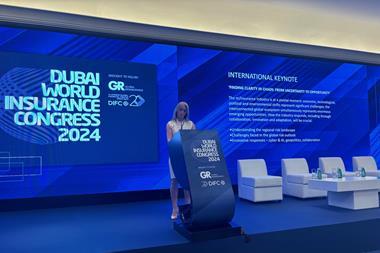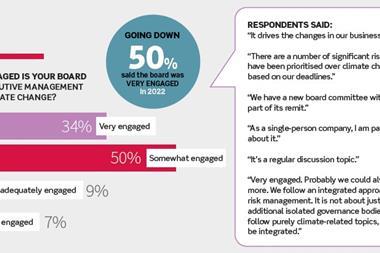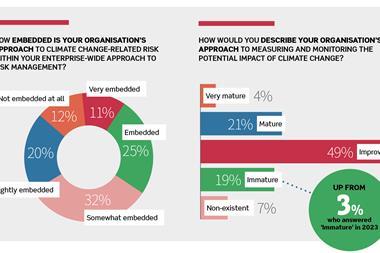The ‘rising population and changing demographics’ must also be factored into risk management strategies concerning climate, says global head of climate and sustainability solutions
Risk managers need to push climate risks further up their agendas as governments and regulators look at new rules to manage the impact of global warming.
This call to action was issued during a webinar hosted by Strategic Risk on 24 June 2024. Sponsored by Zurich Insurance and chaired by Katie Scott, editor of sister title Insurance Times, the webinar was entitled How to get ahead of the curve on climate regulation and reporting.

The discussion centred around the potential risks that could arise from newly introduced climate change-related regulation, applicable for businesses of all sizes.
Panellist Markus Noethiger, group head of environmental, social and governance (ESG) at Serra Verde Group, said the days when the issue of climate change and its impact were theoretical were in the past.
“We are beginning to see the real apex of physical risks,” he explained. “Earlier in the year [January 2024], the World Economic Forum released its Global Risks Report, in which [it] said climate change is no longer a risk – it is a reality.”
He warned that resultant regulation was impacting businesses.
“Regulation is having an effect and we have seen ESG now being politicised, with greenwashing regulations challenging companies’ climate activities. It has led to companies taking back their climate targets,” he said.
Speaking to the scale of the changing climate and associated concerns, Amar Rahman, global head of climate and sustainability solutions at Zurich Insurance, added: “Every time we turn on the news, we see the impacts of climate change.
“It is not only impacting supply chains and the physical assets of the business, it is impacting employees and their families and the communities in which companies are based.
“It is getting more complex and the risks are becoming more interconnected. Businesses of all sizes are affected.”
Insurance as one lever
For Rahman, risk managers looking at insurance policies as a solution to tackling climate-based risks should instead take a step back and view insurance cover as just one lever to pull as part of an overall mitigation strategy.
He explained: “You need to take an operations and strategic view of the risks posed by the climate in your business.
“As with any other risk, be it your car or protecting an asset from risks such as fire damage, you would not simply rely on insurance.
“In terms of fire risk, you may well look to instal sprinkler systems and fire-retardant materials. In case of the car, would you ensure it was well maintained and that it is driven with care and attention.
“To rely solely on insurance would simply be a case of bad risk management.”
Insurance risk surveyors need a “highly specialised” skill set to “assess climate risk”, Rahman added.
He continued: “[These] teams would need to look at climate change at a site level. It is not just looking at the resilience to immediate events, such as wind and flood, for example.
“There are also the long-term and chronic risks such as heat and access to water, coupled with the impact on employee health.”
Resilience at the heart of strategic thinking
Rahman told webinar attendees that “there needs to be a focus on resilience” when looking at the management of climate linked risks – especially in light of the focus on regulatory reporting in this area.
He continued: “It is why we set up Zurich Resilience Services, to work with our clients on increasing resilience and risk management.
“When you look at your strategy, you have to remember that climate change will not happen in 30, 50, or 100 years’ time. It is happening now.
“We are looking at how we can work with clients to develop new tools to mitigate risks. However, we all too often talk about the extreme and physical risks, such as weather events.
“There is another area which has to be factored into risk planning and that is the environment. By that I mean the rising population and changing demographics in the areas in which you live and your business operates.
“Infrastructure is deteriorating and is being stretched beyond its design limits.”
Also speaking on the panel was Annacel Natividad, chief finance and chief risk officer at Aboitiz Food Group, who provided case study examples of how her business was approaching climate change risk management.
Watch the webinar on-demand here



















No comments yet